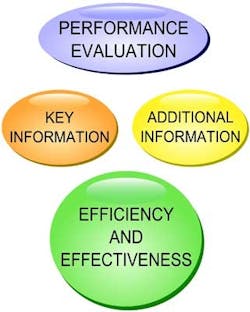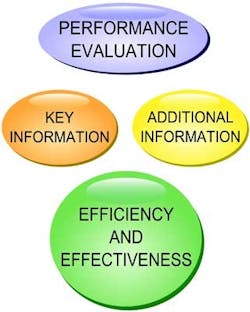Providing Feedback to the Dental Team
by Rhonda R. Savage, DDS
What does your staff want? More feedback! One of the frustrations of team members is the lack of feedback. It is difficult to find the time in a busy dental practice, and yet daily coaching can have a very positive effect on your team. What does your coworker want? Your team member wants to work in harmony with you and know that he or she is in good standing with you. It’s important to stress that you do not need to be friends with everyone you work with, but you do need to be friendly and professional. Unresolved past issues or frustrations can build and erupt at inopportune moments if they are unresolved. How do you give feedback without your female staff or coworker dissolving into tears? There are five techniques to implement that will allow you to give your team the kind of feedback that they not only want, but deserve. These techniques work well whether you are a practice owner, practice administrator, or team member having difficulty with a coworker. 1. Don't let your frustrations build.Too many of us let feelings build and then old frustrations spill out into today’s problems. If you’re angry, anger either leads to silence or an unreasonable outburst if issues have been dealt with and we let them build up. Everyone knows when someone is upset. Staff, doctors, and office managers want to know, not wonder, what’s wrong.You can be a great person and leader 90% of the time, but if you explode into anger or give someone the silent treatment, unfortunately they’ll mostly remember the 10% of the time that you behaved inappropriately. If you become upset, take the time to cool off and collect your thoughts. What do you really want from the situation? Focus on your heart: what are your motives? Do you want to prove the person wrong? Belittle him or her? Or affect a change that will have a positive result? If your motives aren’t clear and beneficial for the other person and the health of the practice, the results may not be what you desire.Express how you feel daily, but try to do so in a positive way. As Linda Miles says, “Put a spotlight on what someone’s doing right, rather than a magnifying glass on what someone’s doing wrong.” A positive approach to problem solving will decrease stress and tension in your office. Team members want to go home at night and know everything is OK. This is especially true of female staff. 2. Approach the problem as an issue with a system or a “thing” rather than a personal attack.Begin by talking about how you feel. Use the “feel, felt, found” method. “I feel hesitant to talk with you about this, because I was concerned about your reaction. When this happened, this is how I felt. I’ve found that if I can discuss it, we can work on the system to ensure this doesn’t happen again.”An example: As a dentist, you have a systematic approach to quality control of your laboratory work. One dental assistant is in charge of checking in the lab cases and verifying the arrival of cases. You’ve asked your dental assistant to verify that the dental lab delivers your cases two days prior to the patient’s appointment. You then inspect the model work, check the contacts, and evaluate contours and occlusion. If there is an issue, the case can be returned and corrected, or the patient can be rescheduled without impacting the patient’s valuable time. This can save the patient time in the chair and improve the quality of the final restoration.Instead, the case arrives the day of the appointment and the seating takes more time than it should. You may choose to become angry with the assistant in charge of lab cases and explode, or give her the silent treatment. Instead, take a few deep breaths and approach her at some point during the day when she is alone. Never correct another person in front of a patient or other staff. The rule is, praise publically and correct privately.Begin by saying, “Kathy, can I talk with you? I feel we need to discuss Mrs. Jones’ case today. The seat didn’t go as well as it could have, and I know you and I always want the best for our patients. When the lab case for Mrs. Jones arrived late, I felt frustrated because the contacts weren’t right and the occlusion was off, so the seat time took twice as long as it should have! I’ve found that if the cases are here several days ahead of time, we can save the patient’s time and decrease the stress that occurs when we get behind. Kathy, I need your help. What can we do to ensure the lab gets the case to us two days prior to the seat?”In this situation, you’ve stated your motive — you always want the best for your patients — and you’ve said four very important words — I need your help! This empowers the staff. Even though the person has been corrected, he or she will know you still respect and like her. The approach attacks the issue, not the person. But what if you’ve been specific and patient, yet the same problem continues to occur?Doctors or practice administrators, do you sometimes feel frustrated because you say it over and over? Have you asked yourself why you feel like a nag or a babysitter? Your frustration is legitimate, but you must realize that most leaders under-communicate by a ratio of 1:10. People learn and hear differently. Make sure you’ve given clear communication, which means you may need to say something repetitively until it’s understood and becomes habit. 3. Another approach is the sandwich technique.Approach the person and ask, “Is this a good time?” If not, set aside some time that day. Let the person know that something is bothering you. Start with something good the person has been doing, not flattery or artificial praise, but specific, genuine praise. Then let the person know what’s been bothering you. If possible, try to tackle it as a problem with a system or a thing that can be fixed. Finish again with something that demonstrates positive, specific praise. This layered approach makes the person feel valued and respected.Here’s another example. One doctor was having difficulty with his hygienist’s behavior. She was continually going up to the front desk to complain and create chaos. He had addressed her behavior, but as the problems continued, his frustration built. One day he let the frustrations get the better of him and rather than using the “sandwich” technique and “feel-felt-found” method, he exploded! The doctor called me right away, embarrassed by his reaction. He said, “Rhonda, I feel so bad. I gave her the sandwich technique, but I forgot the bread!” He called her quickly and apologized for his behavior and then sat down with her the next day to clear the air. An apology can go a long way toward softening the other person and opening the channels for meaningful discussion. Because he took time to communicate with her the next day, her behavior changed and their relationship has improved significantly!Practices that grow and thrive are those with an atmosphere where it’s OK to talk not only about what’s right, but what’s wrong. In an article titled, “Why Teammates Surrender” by Paul Mulvey, two of the major causes cited for giving up include a dysfunctional decision-making climate, and a lack of confidence in one’s ability to contribute. 4. Another technique for coaching is regular performance reviews.Many dentists hate and avoid doing performance reviews, but your team members need and want them. They want to know where they stand. I often hear, “I guess I’m doing a good job. My doctor never tells me and we don’t have performance reviews.” A well-done performance review is positive and motivating; it should not focus on past bad performance. Performance reviews build a team member’s confidence if the focus is on three things:- What the employee is doing well
- Personal goal setting for the employee
- The needs of the practice
Rhonda Savage, DDS, has been in private practice for 16 years and is the CEO for Linda L. Miles and Associates, an internationally known practice management and consulting business. Dr. Savage is a noted speaker who lectures on practice management, esthetic dentistry, women's health issues, periodontal disease, communication and marketing, and zoo dentistry. You may reach Dr. Savage at [email protected].

